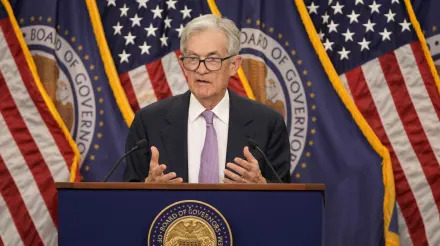(Bloomberg) -- Russia’s flagship crude oil has dropped back below a price cap of $60 a barrel for the first time since December, one of several indicators that fresh US sanctions on Moscow may be biting.
Sellers of Urals, the nation’s key export grade, are having to swallow discounts of as much as $16 a barrel, according to data from Argus Media. The gap hasn’t been that wide since May. At the same time, the difference between export prices at a key Russian oil port and import prices at destinations in Asia has mushroomed.
Taken together, the movements offer one of the clearest signs yet of how measures imposed by the US Office of Foreign Assets Control are hurting Russia.
On Jan. 10, the outgoing Biden administration announced wide-ranging restrictions against Russia, including designating 161 tankers tied to the country’s oil trade. With buyers in India and China wary about dealing with the ships, that’s supported rates for the vessels still willing to move Moscow’s oil — effectively adding to delivery costs.
Since the January sanctions were announced, the discount for Urals at the Baltic Sea port of Primorsk relative to Argus’s assessment of a key European benchmark called North Sea Dated has dramatically widened, hitting $15.70 a barrel on Wednesday.
Urals at the point of export is also getting cheaper compared with the delivery price into India. That discount hit $13 a barrel, also the widest since May. Argus’s weekly freight assessment for carrying oil from Primorsk to India also surged on Friday.
Below-$60-a-barrel prices — conforming with the cap set by Group of Seven nations — will in theory enable Russian exporters to use western services like tankers and insurance, provided traders vouch for the barrels having been purchased below that threshold.
When prices are well above that threshold — they were above $80 in late-2023 — some shipowners and western service providers can be more wary of dealing with Russian oil.
--With assistance from Alex Longley and Julian Lee.





